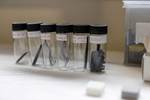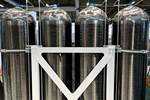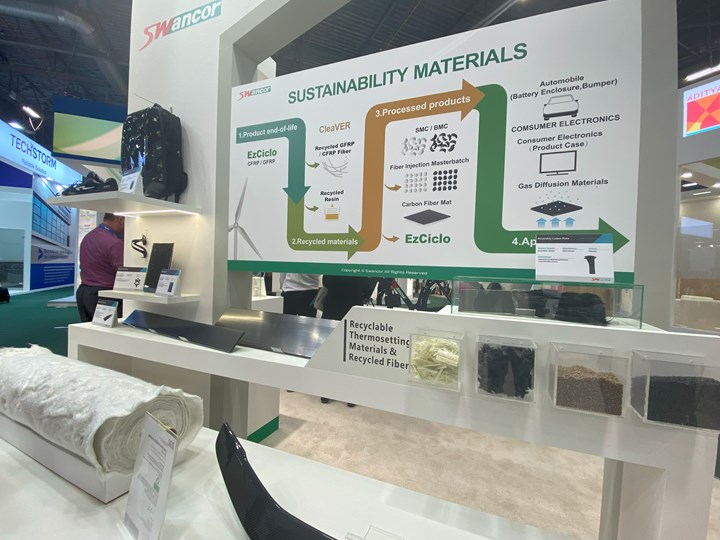Swancor obtains GRS-certified recycled carbon fiber
One hundred percent recyclable fibers have been achieved from composite components made from the company’s EzCiclo thermoset resin.
Specialty chemicals company Swancor (Nantou, Taiwan) announces that global recycle standard (GRS)-certified recycled fibers have been obtained from composites made from the company’s circular recycling material EzCiclo, through a simple degradation process. Swancor contends that this is the first GRS-certified 100% recycled carbon fiber in the world.
The GRS is a global recycling standard that is based on the concept of the circular economy. To obtain GRS certification, a product must contain at least 20% recycled fibers and be 100% free of pollutant. The goal is to build truly sustainable products with zero waste and zero emissions.
These results are said to reflect Swancor’s research and development capabilities in innovative products and new technologies, enhancing the feasibility of sustainable circular economy. It provides its customers with reliable product declarations, traceability and meets the environmental and social responsibility requirements applicable to various industries.
EzCiclo is a recyclable and reusable thermosetting epoxy resin. It provides a solution for practicing a green circular economy by establishing a business model and value chain for the recycling of thermosetting materials. For example, Swancor announced in July 2022 its collaboration with Siemens Gamesa to develop recyclable wind blades using this technology.
Read, “JEC World 2023 highlights: Recyclable resins, renewable energy solutions, award-winning automotive” for updates on this technology.
Related Content
-
The making of carbon fiber
A look at the process by which precursor becomes carbon fiber through a careful (and mostly proprietary) manipulation of temperature and tension.
-
Carbon fiber in pressure vessels for hydrogen
The emerging H2 economy drives tank development for aircraft, ships and gas transport.
-
Materials & Processes: Resin matrices for composites
The matrix binds the fiber reinforcement, gives the composite component its shape and determines its surface quality. A composite matrix may be a polymer, ceramic, metal or carbon. Here’s a guide to selection.

















